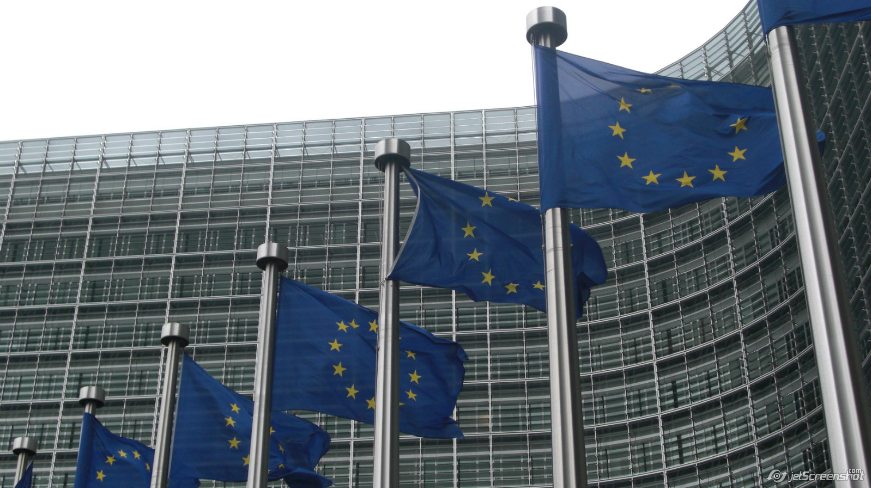
By Jakub Janda, for DisinfoPortal
When the EU unveiled its Action Plan against Disinformation in December 2018, some experts welcomed the plan as a good first step toward a savvier and better-equipped West. Others, however, believe that the plan came too late and that the European Commission bears the blame for not treating the threat of disinformation with the urgency and gravity it deserved.
Almost five years after the Russian invasion of Ukraine and subsequent disinformation assaults on an array of European democracies, the EU finally has an official strategy to combat the problem. The wording and scope of the plan is good. But many specialists are skeptical about whether or not words will translate into action, a recurring problem for the EU vis-à-vis Russia-related issues.
The Action Plan predicts that the creation of a so-called Rapid Alert System (RAS) will help to identify and stop disinformation before it reaches a wide audience. Unfortunately, election disinformation presents a particular challenge: governments usually announce elections years in advance, and malicious actors thus have ample time to pursue long-term strategies commencing years before the actual election date. The EU announced the 2019 elections in 2014; it launched the RAS in March 2019, two months before voters throughout Europe will go to the polls. The European Commission’s delay therefore gave the Kremlin nearly five years to plant and cultivate disinformation narratives. Even the EU’s own East StratCom acknowledged the damage done during the long period of inaction between the elections’ announcement and the launch of the RAS.
Better tools for fighting disinformation targeted at the 2019 elections existed before the launch of the RAS. The European Commission could have engaged some of its member states’ best practices and organizations working to combat hostile information operations. One of many examples is Lithuania’s debunk.eu, where artificial intelligence and human expertise work together in real time. Instead, the RAS is private and leaves the EU’s most comprehensive effort against disinformation to date in the hands of its member states’ institutions. Such a network has limited added value when it lacks the introduction of fresh expertise and new technological components, such as open-source intelligence tools of the sort NATO is embracing. Because the Commission decided to keep the RAS private among the national governments of the EU, the experts and journalists who may have greater access to a general audience cannot utilize it to quickly flag disinformation campaigns.
The Action Plan stresses “the key role played by civil society” in the fight against disinformation. However, the Union and the majority of its member states lack substantive funding mechanisms for development of issue-specific civil society activities focusing on countering the disinformation threat. Such a lack of funding helps to explain why many European countries lack disinformation-focused NGOs. If the EU wants civil society organizations to meaningfully contribute to the fight against disinformation aimed at the EU, it and its member states should allocate greater funds to support these groups.
On a positive note, the Action Plan outlines actionable policy objectives intended to mandate a higher standard of accountability from platforms such as Facebook and Google. The platforms are not, of course, the generators of hostile disinformation. But given their outreach and influence over mammoth quantities of information and millions of people in Europe and beyond, they inevitably function as the chief enablers and multipliers of the disinformation threat. Through the Action Plan, the European Commission is playing a more positive and progressive role in pushing the tech giants for greater transparency and responsibility. Additionally, the consensus in European capitals is gradually shifting toward hard regulation of the platforms. The next Commission should continue to apply pressure on the tech companies in the areas of countering disinformation, protecting users’ personal data, and monopoly issues.
Overall, the central question of whether or not the EU will continue efforts to defend itself from disinformation and take steps commensurate with the severity of the threat is purely political. The growing community of experts and activists aware of the grave risks of inaction has presented various policy proposals outlining realistic ideas and reforms capable of appropriately preparing the EU for a future in which disinformation is sure to abound. Comparing the political statements made by European politicians about progress made on disinformation efforts with the lack of resources allocated to civil society organizations and NGOs, one can see that the issue is not one of knowledge; it is a lack of political will.
This autumn, a new European Commission will be formed. If the leaders of this Commission understand the geopolitical threats of today, they will recognize that disinformation cannot be neglected or treated as a low-priority threat. There are hundreds, if not thousands, of European specialists with extensive knowledge about disinformation and how to combat it ready to serve the common defense of the continent. If the collective political will arises to meaningfully implement and build upon it, the Action Plan against Disinformation can provide a hopeful framework.
By Jakub Janda, for DisinfoPortal
Jakub Janda serves as Executive Director of Prague-based European Values Think-Tank and Head of its Kremlin Watch Program.




